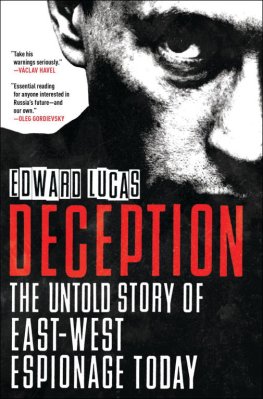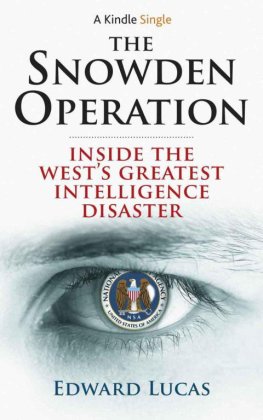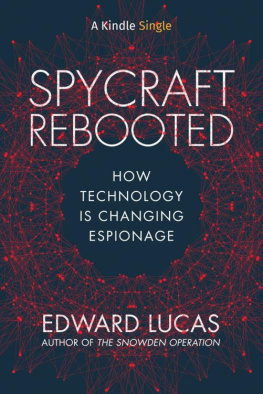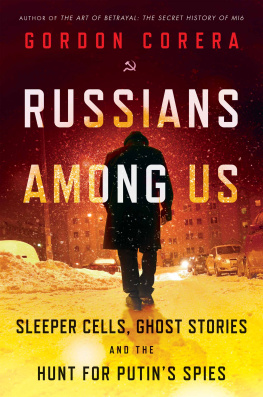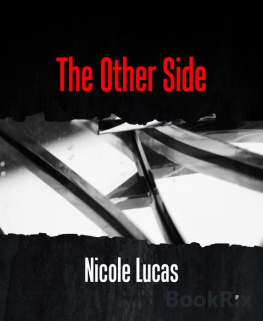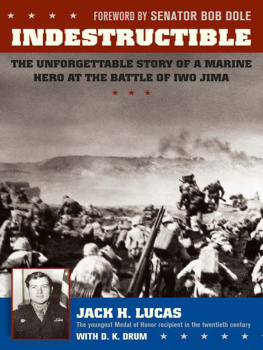Edward Lucas
DECEPTION
The Untold Story of East-West Espionage Today

The cold breath of the communist secret police state blighted countless lives behind the Iron Curtain. But it also touched my own childhood in 1970s Oxford. Olgica, our Yugoslav lodger, had an exciting secret: Uncle Duan. The poet Matthew Arnold described Oxford as home of lost causes, and forsaken beliefs, and unpopular names, and impossible loyalties. In Duans case, this was partly right: his surname (like those of most East European migrs) if not exactly unpopular, was certainly baffling to British eyes and ears. I recall him as a glum, shadowy figure, with plenty to be glum about. His cause seemed irretrievably lost. He was a hero in his own twilight world, but in post-war Yugoslavia the authorities denounced anti-communists like him as criminals and traitors. Many perished in mass graves or in the torture cells of the secret police. Duan was one of the lucky ones. He had escaped to Britain, to a humble job as a mechanic and life in Crotch Crescent, a drab street in Oxfords outskirts a sad comedown for someone who in pre-war Yugoslavia had been a high-flying young civil servant.
But in one respect, Duan did not fit Arnolds dictum. Despite his disappointments, he had not forsaken his beliefs: communism was evil and the people who ruled his homeland were usurpers. In fact, Yugoslavias independent-minded communists had become mild by comparison with the much tougher regimes of the Soviet bloc. But they were still ruthless in their treatment of dissenters, particularly those in contact with anti-communists abroad. Olgicas family maintained, at great risk, secret links with migr relatives, flatly denying all knowledge of them under interrogation from the secret police. In Oxford, she visited her uncle each weekend. Had the authorities at home known that she was hobnobbing with a dangerous anti-communist migr, her fathers glittering medical career (which had even brought him, briefly, to Oxford) would end; her own future (she had stayed on to finish her schooling) would be jeopardised too. It could even be dangerous for her to return home, leaving her stranded in Britain as a teenage refugee.
My own childish preoccupations blundered into this grown-up world. Even before Olgicas arrival, my boyhood obsession had been Eastern Europe. I would spend hours looking at dusty atlases and reading about the vanished kingdoms and republics of the pre-communist era, with their long-forgotten politicians, quaint postage stamps and exotic languages. Now behind the Iron Curtain, they seemed as distant and unreal as Atlantis. In my early teens I needed an example of communist propaganda for a school history project and decided to write to the Yugoslav embassy in London, asking for an official statement of how their government saw their defeated royalist rivals. That would, I thought, sit nicely alongside the other exhibits I had already assembled, including a passage from Winston Churchills history of the war, a poignant account of life in Cambridge by the exiled Yugoslav boy-king Peter, and a sizzling history of a British military mission to his doomed soldiers, the Chetniks.1
I proudly announced my plan. To my consternation, Olgica turned white. My mother took me aside: didnt I understand that the Yugoslav embassy in London would at once hand over this letter to the secret police? (With its sinister-sounding acronym UDBA, the Uprava dravne bezbednosti or Department of State Security was the bane of the regimes critics at home and abroad). It would be obvious that my childish enquiry came from the very Oxford address at which the daughter of a top Yugoslav paediatrician was living while completing her A-levels. It was bad enough that the UDBA would instantly suspect her of propagandising about the royalist past a crime in Yugoslavia. Worse, it would start checking up on her family history and might then discover her carefully concealed ties to the notorious inhabitant of Crotch Crescent. Her life could unravel in an instant.
This trivial episode taught me important lessons albeit in politics not history. First, that the power of the communist state was based on the relentless, intrusive, bureaucratic reach of the security and intelligence services, and their capacity to ruin the lives of those who displeased them. Second that these agencies reach extended far beyond their own grim dominions even to the seemingly safe and secure world of an English university town. The extraordinary idea that my actions could put me under scrutiny by hostile foreign officials sparked an interest that has gripped me for decades. In the years that followed I devoured spy literature, from defectors memoirs to John le Carrs novels. I tracked down retired spies and quizzed them. I also kept a beady eye on contemporaries who were offered jobs by MI6, as Britains Secret Intelligence Service, SIS, is colloquially known.
Even without knowing much about the intelligence world I was struck by the clumsiness of those approaches: on the same day a crop of identical government-issue buff envelopes would arrive in student pigeonholes. Some recipients ignored the strictures to keep silent. A friend even framed the letter and put it in his lavatory, so his friends could appreciate the unconvincing letterhead and the strangulated wording of the offer: From time to time opportunities arise in government service overseas of a specialised and confidential nature. For those who did apply, the clumsy efforts of the vetting officers (also accompanied by dire warnings about secrecy) were similarly corrosive of confidence in the spooks world-view. Did it really matter in the struggle against the Soviet empire, I wondered, if Tom had gay flings, if Dick smoked dope or if Harriet had a boyfriend in the Socialist Workers Party?
I reckoned I could do more good on the outside, and searched for any East European cause that would accept my help. Inspired by my father, who smuggled books to fellow-philosophers persecuted in Czechoslovakia, I helped organise a student campaign to support Polands Solidarity movement, crushed by martial law in December 1981. I waved placards outside embassies and wrote letters of protest on behalf of political prisoners. I studied unfashionable languages such as Polish, and practised them by befriending bitter old migrs in the dusty clubs and offices of west London the world of le Carrs Estonian General in Smileys People.2 Like the spy authors fictional migrs, these real-life ones had been sponsored by Britains spooks, then betrayed and dumped. I did not know then the full extent of the fiasco of Operation Jungle, which I detail in chapter 9.
This book is the result of my twin interests, espionage and Eastern Europe. I would occasionally take the number 12 bus down Westminster Bridge Road in Lambeth, past the headquarters of Britains MI6. The location was in those days, supposedly, a closely guarded official secret, though the bus conductor was prone to announce jovially Century House all spies alight here. I never went inside. But I would gaze up at the grubby concrete structure, with a petrol station incongruously sited in its forecourt. Was this really our answer to the fearsome Soviet Lubyanka in Moscow? The imposing classical faade of the KGB citadel (originally an insurance company headquarters) would have suited the grandest streets in central London. But the MI6 building looked liked a scruffy Soviet tower block.
Spies, whether paid agents, idealistic volunteers, or professional intelligence officers, were foot soldiers in the struggle between East and West that shaped the lives of all post-war generations, including mine. They intrigued me as a student, activist and journalist, first in London and later behind the Iron Curtain. In the 1980s I rubbed shoulders and clinked glasses with spooks on both sides, dodging their blandishments while swapping jokes, jibes, arguments and ideas. For a brief while, the collapse of communism looked set to doom the whole business. Now that the Soviet Union was gone, and with it the danger of the Cold War turning hot, what was left to spy on? But the champagne corks that spooks popped in Britain and America in August 1991 were as premature as the gloom in the Lubyanka as the statue of Felix Dzerzhinsky, Lenins secret-police chief, was hauled away by a crane to the cheers of exuberant Muscovites. MI6, the CIA and their partner services rejigged their budgets and turned to new targets: rogue arms dealers, terrorists, gangsters and cyber-criminals. But new crime and old espionage soon proved to be easy bedfellows; the spivs and crooks in the foreground were sometimes new, but in the background lurked, more often than not, the wily and ruthless figures of the old Soviet-block intelligence world.

